US sanctions Iran’s Ghezel Hesar Prison over human rights violations
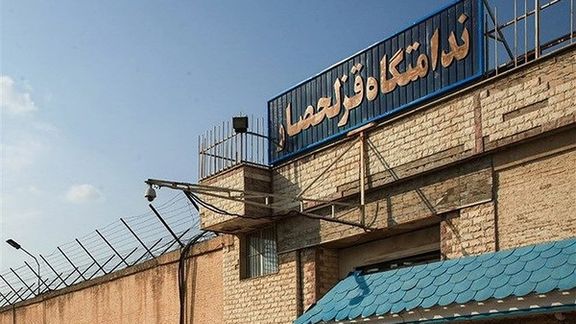
The United States designated Iran’s Ghezel Hesar Prison where hundreds of dissidents have been tortured and executed over the years.

The United States designated Iran’s Ghezel Hesar Prison where hundreds of dissidents have been tortured and executed over the years.
“This prison was the site of gross violations of human rights, namely cruel, inhuman and degrading treatment and punishment of individuals in Iran who sought to exercise their right to freedom of expression,”US Secretary of State Antony Blinken said Thursday.
Earlier this year, the United States also sanctioned officials from Iran’s Prisons Organization who played a role in suppressing widespread protests that followed the death in custody of Mahsa Amini in September 2022.
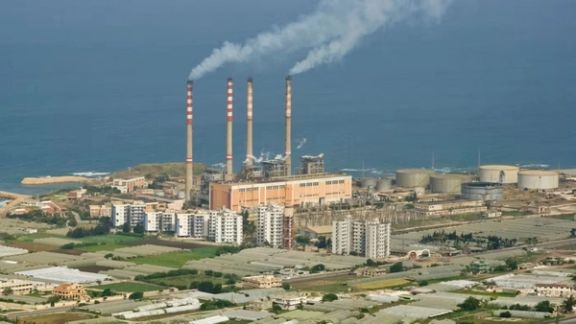
Syria’s largest oil refinery, Baniyas, halted operations after losing crude shipments from Iran, its primary supplier, the Financial Times reported, citing the refinery’s general manager.
Ibrahim Mousallem said the refinery produced its last petrol on Friday, following the fall of Iran-backed president Bashar al-Assad.
Syria’s new leadership expects sanctions to be lifted, enabling non-Iranian oil imports and equipment repairs, he added.
Earlier this month, in the wake of the collapse of Bashar al-Assad’s government in Syria, an Iranian tanker carrying oil to Syria reversed its course in the Red Sea apparently headed back toward the Persian Gulf.
According to data received by Iran International from Kepler, a leading provider of technology-led insights into energy and shipping markets, Iran had been sending between 60,000 and 70,000 barrels of oil to Syria daily.
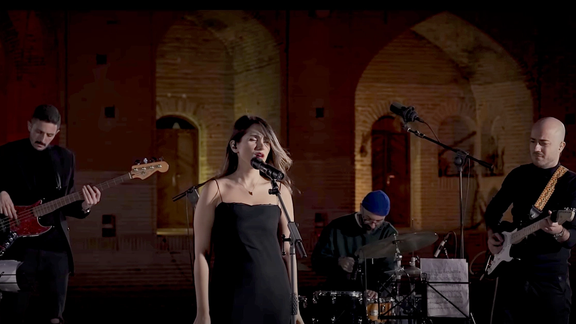
The now-viral unveiled performance by singer Parastoo Ahmadi which landed her briefly in jail was not just an artistic endeavor, but a groundbreaking act of defiance of Iran’s new oppressive Hijab law and the theocratic apparatus of control.
The significance of the moment is hard to overstate: a young woman raising her voice in song in an open space just as greying men in closed rooms pass laws demanding women and girls like her live as they dictate or face punishment.
Politicians and philosophers in eras past clearly warned of the affront to society such brute measures represent.
Under Iran’s new hijab law, women and even teenage girls face heavy fines, travel bans, and ultimately imprisonment if they do not follow a strict, arbitrary dress code. A government that enacts such a law seeks to exert total control over its citizens. This is not a law about clothing; it is a tool for suppression of human dignity.
The scope of this law is unprecedented. Minors as young as nine years old can face fines or detention in juvenile facilities for noncompliance. Social media influencers, businesses and even parents of offenders are held accountable, creating a web of fear and enforcement.
Surveillance measures extend to digital spaces, requiring platforms to remove noncompliant content or face punitive actions. The aim is to crush dissent and—perhaps more disturbingly— to correct any ideological deviation.
The law evokes George Orwell’s dystopian novel 1984, where surveillance extends not only to actions but also to thoughts and identities. The legislation seeks to enforce not just outward compliance but inward conformity, leaving no room for personal freedom or dissent.
Control is imposed by surveillance and punishment, targeting families, businesses, and entire communities. Women who choose to wear attire deemed inappropriate by the state risk being charged with “corruption on earth,” a charge that can carry the death penalty.
Businesses, from local shops to online platforms, are fined or shut down if they fail to report or enforce compliance among employees and customers.
This flies in the face of societal changes in Iran. Young Iranians appear to be convinced more than ever that individuals are the best judges of their own lives. Having grown up under the Islamic Republic, they seem to know by instinct what the English philosopher John Stuart Mill said in On Liberty: that their freedom to make personal decisions must be protected unless it directly harms others.
The Hijab law, however, does the opposite—it strips away personal choice under the guise of moral guardianship, violating a core tenet of human dignity.
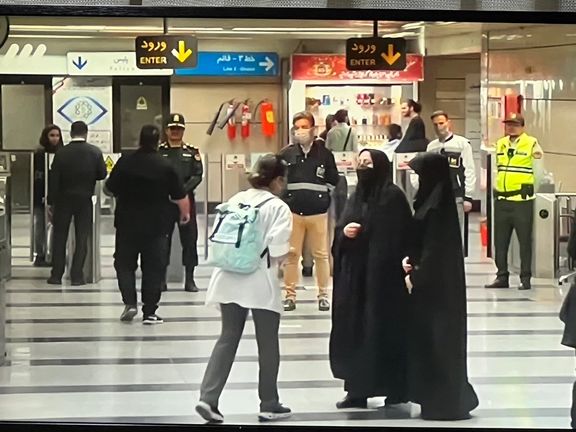
Laws are meant to protect freedoms, safeguard dignity and promote societal justice. A law that fails to uphold justice, as Henry David Thoreau would say, is not a law at all, but a tool of oppression. The Hijab law is that exactly, violating the dignity and autonomy of individuals.
The social consequences of this law are equally alarming. Hannah Arendt, in The Origins of Totalitarianism, warned of the dangers of laws designed to pit citizens against one another.
By mandating surveillance and encouraging individuals to report alleged violations within their communities, the Hijab law fosters mistrust and undermines social cohesion. This dynamic creates a society where neighbors become informants, and fear replaces solidarity.
Despite these oppressive measures, citizens are not powerless. Thoreau believed that resistance to unjust laws is a moral imperative.
Silence in the face of injustice, he argued, equates to complicity. The Hijab law, which flagrantly violates fundamental freedoms, calls for collective opposition. Defending the right to freedom of dress and personal choice is not merely an act of defiance but a stand for justice and human dignity.
In a society where women are jailed or executed for the simplest acts of autonomy, Parastoo’s voice resonated as a symbol of resistance, courage, and the irrepressible human spirit. Accompanied by male bandmates who stood in solidarity rather than domination, they showcased the power of collective defiance against tyranny.
This act of rebellion was a vivid reminder that even within the confines of authoritarianism, the spirit of freedom can shine, emboldening others to challenge unjust laws and envision a future where justice and dignity prevail.
The question for us Iranians and the global community is clear: will we stand idly by, or will we follow Parastoo—and many before her— to confront this affront to freedom and justice?
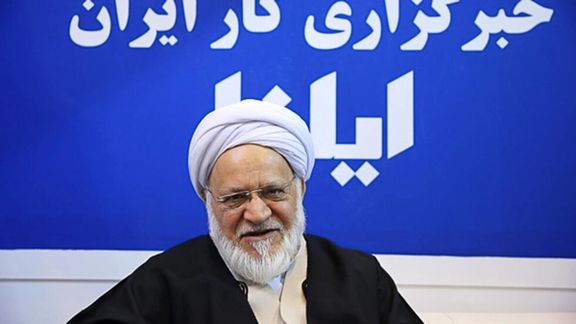
A leading conservative cleric urged the government to channel what he claimed was $30 billion in foreign currency and $40 billion in gold held by the public into Iran’s ailing economy.
“Measures must be taken to direct this... There are solutions for this, and I am ready to present them,” said Gholamreza Mesbahi Moghaddam, a member of Iran’s Expediency Discernment Council.
The Iranian rial’s dramatic fall continues to exacerbate the country’s economic crisis. On Wednesday, the rial was trading at over 780,000 to the US dollar.
This sharp decline, coupled with soaring inflation, has eroded the purchasing power of ordinary Iranians, leaving many struggling to afford basic goods and services.
Iran’s economic woes are further compounded by a severe energy crisis.
As Iran faces its most severe economic downturn in decades, the Iranian population’s resilience is being tested as never before, with increasing uncertainty about the government’s ability to manage the nation’s worsening crises.
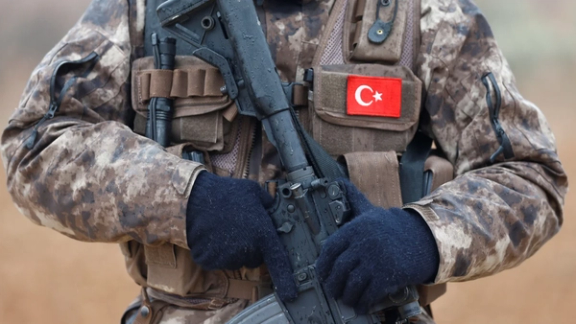
The sudden downfall of Syria's Bashar Al-Assad has put his main backer Iran on the backfoot while giving Turkey the upper hand in a transformed Middle East.
But propping up a friendly government in battered Syria where Tehran failed will be a serious challenge for Ankara, which must also navigate the competing agendas of other heavyweights in the region.
"Turkey is many ways is a real winner here, but time will tell, and if Erdogan overplays his hand, he could mess things up because Israel and the United States won't let it happen," said Henri J. Barkey, a scholar of the Middle East at the US Council on Foreign Relations.
Turkey's President Recep Tayyip Erdogan, a Sunni Islamist, had long supported the armed rebellion against ousted the Iran-backed Syrian dictator Assad, even as the United States and Israel had largely acquiesced to his presence.
Hardline Sunni Islamist rebels capitalized on Shi'ite Islamic Republic's vulnerability in the region after 14 months of withering combat with Israel to wrest Damascus from Assad, whose losing fight against them Iran and its armed allies supported.
"There are complicated days ahead ... for the Syrians in their relationship with Turkey," said Patrick Clawson, a researcher at The Washington Institute.
"The Turks don't have the money to pay for what Syria needs. The Iranians weren't paying a whole lot, just barely keeping outside the line. That's one of the reasons why its forces fell apart".
The reaction of Washington, de facto leader of the NATO alliance in which Turkey has often been a rogue member for its independent stances, will be crucial.
US President-elect Donald Trump said on Monday that Turkey is the ultimate decider of what happens next in Syria, but spoke in harsh terms about its sudden rise there.
"Turkey did an unfriendly takeover without a lot of lives being lost," Trump told a press conference at his Florida residence in Mar-a-Lago.
"Right now, Syria has a lot of, you know, there's a lot of indefinites ... I think Turkey is going to hold the key to Syria,” he added.
“I think this must have come as a big surprise to the Turks because they were expecting that relations with the United States would improve with Trump winning the election, especially because Trump was known to have great admiration for Erdogan," Barkey of the Council on Foreign Relations said.
The Islamic Republic too appears to be casting a skeptical eye on Turkey's role.
Iran’s Supreme Leader Ayatollah Ali Khamenei accused the United States, Israel, and another unnamed country of plotting to overthrow Assad in a speech to his followers last week.
Khamenei was clearly referring to Turkey but dared not criticize it by name because Iran is no position to respond, said Karman Matin, an associate Professor of International Relations at Sussex University in the UK.
“We see a sense of desperation and impotence. The Khamenei speech, I think, was very telling, especially if you put it next to the previous speeches and you see the sense of what he wanted to have but couldn’t,” Matin told Iran International.
After Iran lost its grip in the region after punishing blows by Israel eliminating the top leadership, fighters and weapons stores of Tehran's militant allies, the Islamic Republic must now focus on another grim development: the return of Trump.
Matin described the mood among Iranian hardliners as a growing sense of desperation and feeling of betrayal by its Muslim neighbour in Ankara.
Ahmad Khatami, a senior hardline Iranian cleric, blamed Turkey for Assad’s demise and warned Erdogan that he will face consequences.
“Erdogan will pay the price for this betrayal against Muslims—one day, they [Muslims] will come for him,” said Khatami, a member of Iran's Assembly of Experts and Tehran Friday prayers leader said Tuesday.
While these hardliners also want revenge against Israel for its continued campaign to destabilize the Islamic Republic and its proxies, the Jewish state is also on edge with what will come of Syria’s future governance.
The fall of Assad and the Iranian sphere of influence in Syria is good news for Israel, but Matin described it as bittersweet.
“Israel's concern is probably more about Turkish expansionism now through Sunni rulers of Syria,” said Matin, "Turkey is now an issue for Israel."
As the new leaders in Syria solidify their rule, Matin argues that they won't be in a position to challenge Israel yet.
The ousting of Assad has created an opening for Turkey to now assert itself as a primary external factor, replacing Russia and Iran.
Hakan Fidan, the Turkish foreign minister, told Saudi al-Hadath TV on Sunday that Iran must better understand its actions following Assad’s downfall
“We don’t want Iranian domination, Turkish domination or Arab domination. It’s time for us to come together and establish our own interests, our own order in the region, shoulder to shoulder,” said Fidan.
Turkish spy chief Ibrahim Kalin was reportedly in Damascus last week for a meeting with rebel leaders and prayed in the city’s Umayyad Mosque which dates back to the dawn of Islam, according to Turkish media.
During the height of the Syrian civil war a decade ago, Erdogan took aim at Assad’s attacks on civilians, vowing to one day pray in the courtyard of that mosque.
He may soon be able to honor that pledge.
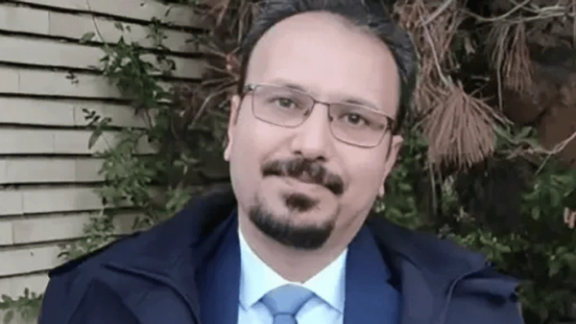
An Iranian political prisoner blasted the government for carrying on with executions while shutting down schools, offices and businesses amid ongoing energy deficit. “One thing has not been paused for those in power, and that is executions," Haeri said from prison Thursday.
He also criticized Iran’s support for Syria’s ousted president Bashar al-Assad, highlighting reports of a drug production operation tied to Assad’s brother, Maher, while Iran continues to execute young individuals for possessing small amounts of drugs.
“These executions, beyond being a blatant violation of human rights, bring no benefit to the regime itself other than further angering the people and accelerating the steep path toward collapse," he added.